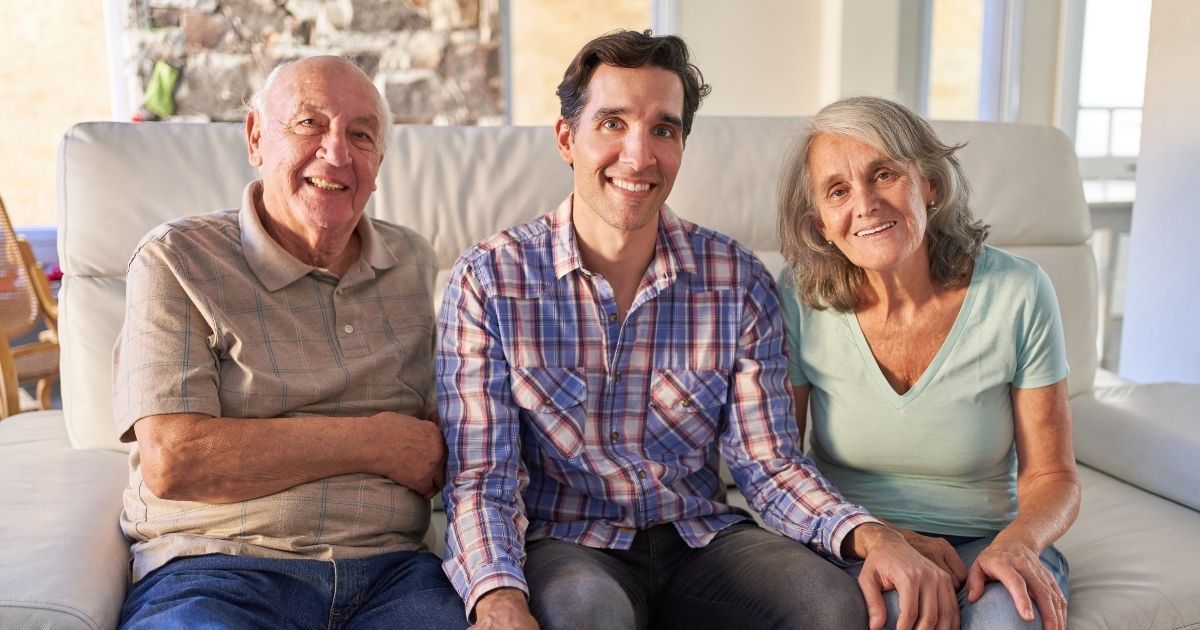Role reversal in the relationship between elderly parents and their children is difficult for all concerned.
The parent finds themselves dependent on a child they once nurtured as an infant, helped through adolescence, and supported and encouraged as an adult.
The child now becomes the caregiver. You may find yourself bathing your parent, helping them dress, cooking nutritious meals for them, driving them to appointments, and doing the countless other tasks they could once do easily but no longer can.
One of the many challenges of these new roles is that it usually sneaks up on you. Just like you can’t sit and watch the grass grow, you can’t see your parents aging. Until one day you realize that your parents need care.
Just about everything works out better when you have a plan – including having a family care plan for your aging parents. Addressing this with your family members before Mom and Dad need your assistance will help everyone adapt, especially while managing a household and juggling work.
Questions to Prepare The Family
Gathering siblings together to develop a care plan for their parents can be tricky because of relationship dynamics. Brothers and sisters don’t always see eye to eye, and kids sometimes harbor feelings of resentment for their parents.
Having a prepared list of questions can guide the discussion and help everyone work together. You may not all agree on the answers, and it may take more than one meeting of the minds to develop a plan. Here are some questions you can answer together to start putting a plan in place to care for your aging parents.
- What resources can each family member provide towards the care your elderly parents will need?
- How much care will they need on a daily, weekly, and monthly basis? For example, has one of your parents recently had a stroke that has placed a caretaking burden on their spouse, who is also becoming unable to do all things for themselves that they used to?
- Have they been diagnosed with a mental disorder or disease that impairs their safety and decision-making processes, like dementia or Alzheimer’s disease?
- Are your aging parents capable of continuing to function at home?
- Who will be handling their financial and legal affairs (having more than one person do this is recommended)?
- Which of the kids will serve as caregivers?
- What is your parent’s current financial situation?
It’s important to remember and emphasize that family caregiving can be tiring both emotionally and physically. Talk about how a team caregiving effort with many hands involved will work best for the entire family, including Mom and Dad.
At some point, respite care may be needed. Everyone may need a break from the duties required to keep their parents at home; caring for them won’t get any easier as the days go by.
Use Professional In-Home Caregivers to Help Elderly Parents
There are many things a professional caregiver can do to help your loved one:
- Light housework and laundry
- Cooking meals and helping with eating
- Shopping, running errands, and doctor’s appointments
- Bathing, dressing, and using the toilet
- Medication reminders
- Companionship and social activities
- And much more
A professional caregiver is there not only to help a senior stay healthy but also to improve their overall quality of life. The caregivers at Adultcare Assistance Homecare are skilled and compassionate caregivers that enable your loved one to grow older in the environment they want and need: their home.
Our locally owned agency has served seniors in the greater Sun City, Phoenix, and Tucson areas for over 25 years. We’ve been voted “Best Homecare In Arizona” for 12 years for a reason – we genuinely care about those we care for, and their families.
Contact us today to discuss your loved one’s needs. Your family doesn’t have to shoulder the load of caregiving alone.


